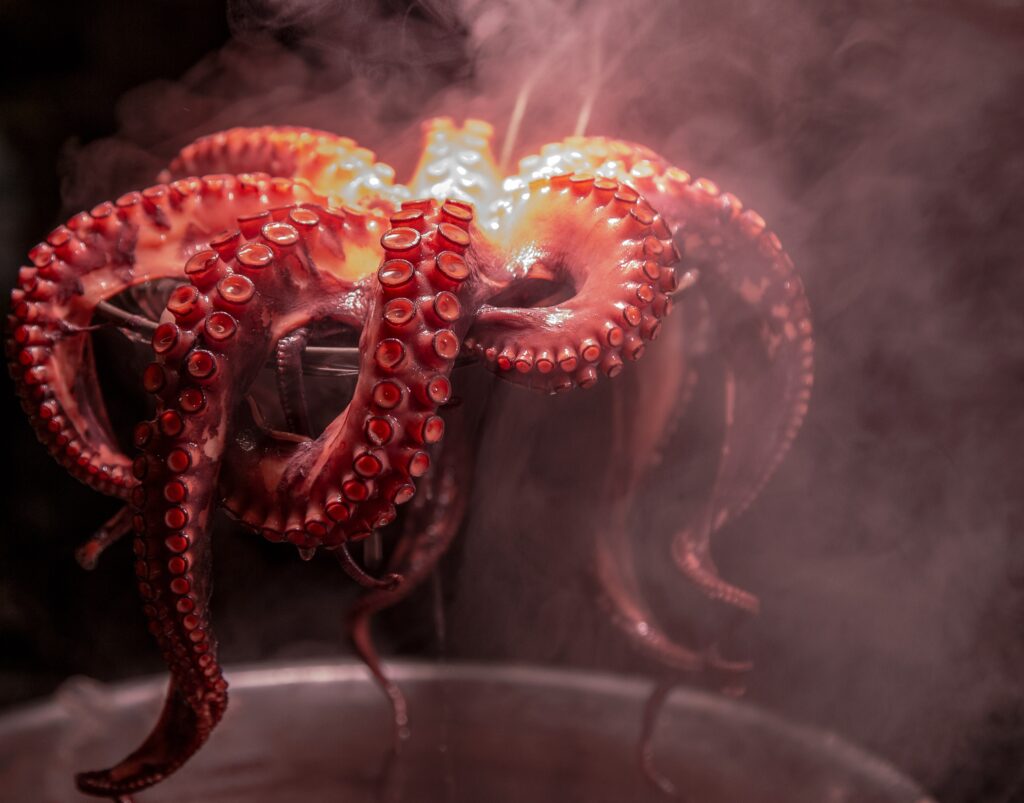Multiple sclerosis probably won’t kill you, and yet
it whittles tentotwenty years off your
life expectancy in its familiar,
almost-invisible way, and that’s okay—going first—if
I won’t have to witness my friends getting drawn
back into the universe and scattered
across the world with no map but flashing toddler
dreams. It’s
difficult for me to picture a Heaven that
doesn’t look like a second chance, and
so I tip the steering wheel against my car’s riptide
alignment and wonder where the soul delineates
from the brain—as in—would the illness follow me
through every lifetime—as in—if it does,
that will be fine—that will have to be
fine. But
that wouldn’t matter if, after I untethered
on land, I hatched as a beautiful
cephalopod tearing headfirst into the
ocean’s sigh. Decentralized nervous system
means—eight arms who are nothing but rambunctious
neighbors—eight arms pulled to the current of their
own whims, of their own axial nerve cords,
and so
if the illness followed me, I would
skim along the seabottom—with perhaps one tentacle
trailing behind, divoting the sand—and seven
tentacles lush and chaotic. Skinny myelin sheaths
are nothing to octopi. They have kisses
where their fingers should be. I would waltz with
fish and wrestle sharks with seven
tentacles. One
day a researcher follows the divot
and says poor girl and lures me into a clay box. Familiar
silhouettes give me nicknames and medicine and send
me to live in a big tank where toddlers suction
their palms to the glass. The zookeepers say, The octopus is
dreaming, and I am, and the rings pulsing
across my skin are the sounds of my old
friends’ laughter.
—
Casey Smith is a poet from South Carolina. She is currently an MFA candidate at the University of Tennessee-Knoxville. Her work is published or forthcoming in Split Lip Magazine, Underblong, Passages North, SICK Magazine, and others. She has a twelfth-house moon.
Photography by: Pasha Gulian
